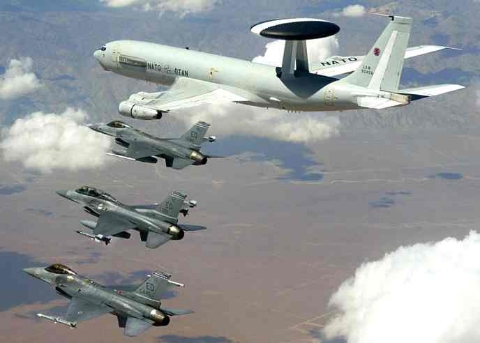by Conor Godfrey on March 21, 2011
It’s happening.
If I had told you four weeks ago that U.S. forces would be bombing another Muslim country in less than a month, you would have said that I was out of my mind.
As I write this, U.S. carriers are beginning a second night of cruise missile strikes against Libyan air defenses to clear the way for Europe’s air forces to halt the advance of Colonel Ghaddafi’s forces toward the rebel stronghold of Benghazi.
What made this ok?
Well, the Security Council resolution made it ok.
But beyond that- which aspects of the situation in Libya made intervention conscionable by all five permanent members of the Security Council?
As I understand it, the following combination of circumstances made intervention in Libya palatable to the powers that be:
1. Clear and present danger to large numbers of civilians. Of course, many of these civilians had taken up arms in a combination of rebellion and self-defense, thus slightly complicating the notion of ‘unarmed civilians’.
2. Acquiescence by the relevant regional/cultural body. In this case, the Arab League.
3. The speed at which events unfolded. Benghazi was going to fall and fall fast. The rebels were outgunned and outmatched, and it was too late in the game for indirect assistance.
4. Nobody cares. Libya, while an important crude supplier, does not have a powerful backer. China and Russia may not be happy about the precedent of interfering in another country’s internal affairs, but we are not talking about North Korea, Bahrain, or Belarus, whose fate is of great concern to China, Saudi Arabia, or Russia, respectively.
5. Plausibility. Libya does not have a nuclear weapon or a massive army. Concerted military action will halt Ghaddafi’s advance. Notice I said plausibility, not likelihood, of success. I think this will most likely lead to a stalemate and short term partition between East and West Libya.
So people were dying, the main regional body agreed with the international community on who the bad guys were, the bad guys were winning, nobody powerful enough to put the kibosh on the intervention had vital national interests at stake, and the Libyan army simply doesn’t have what it takes to shoot down too many Western fighter planes.
Lets apply these metrics to another conflict, say, Cote d’Ivoire.
1) Civilians dying, and likely to continue dying in greater numbers…..check. (500 to date and escalating.)
2) Agreement from major regional/cultural grouping on who the bad guys are…..check. (ECOWAS, and the AU have clearly stated the Gbagbo must step down.)
3) Violence escalating quickly ……..1/2 check. (Clashes are indeed increasing in pro-Outtara districts, but not at the rate that Ghaddafi’s forces were gaining ground in Libya.)
4) Nobody cares………check. (While many countries have major investments in Cote d’Ivoire, none of the Security Council members think of Gbagbo as promoting their most vital national interests.)
5) Plausibility……1/2 check. (Removing Gbagbo would likely require someone’s boots on the ground. In theory, the 10,000 U.N. troops in Cote d’Ivoire should be the ones protecting civilians, but they have not been that aggressive in executing this mandate.)
So what do you think?
Is it just a matter of degree?
Were there simply more people dying in Libya, and dying faster?
Was ECOWAS (West African regional grouping) more divided than the Arab league?
I think these are all reasonable arguments, but I worry that now, as always, ambiguity reigns when deciding when and how to intervene.
This ambiguity affects the strategic calculus of rights abusers like Gbagbo—I think he knows that African countries will not coalesce around major military action.
Yesterday President Ouattara called on the international community to “passer a l’action,” in order to protect civilians and to give him the means to govern the country.
I hope the Security Council can explain why warplanes aren’t on the way.

Open letter to ECOWAS from the International Crisis Group: http://www.crisisgroup.org/en/publication-type/media-releases/2011/open-letter-ecowas-cote-divoire.aspx
Great Jeune Afrique Article here (in french): http://www.jeuneafrique.com/Article/ARTJAWEB20110323084704/onu-media-ua-gouvernementcote-d-ivoire-la-guerre-civile-a-deja-commence.html